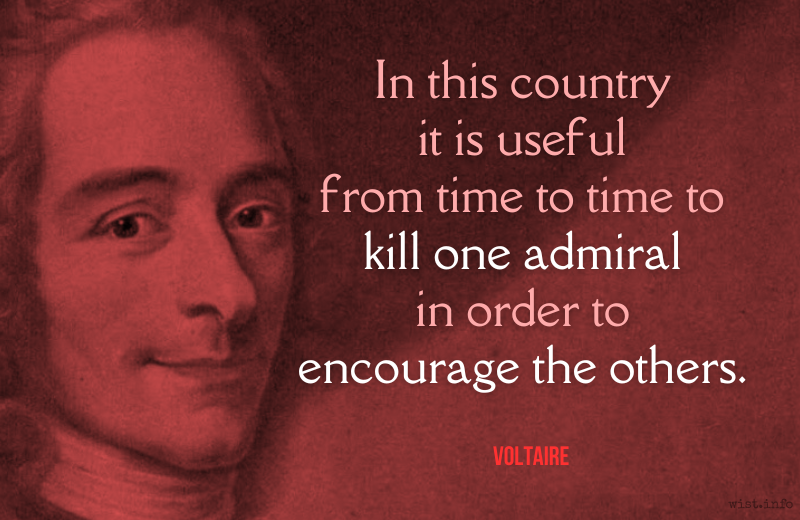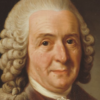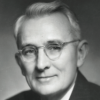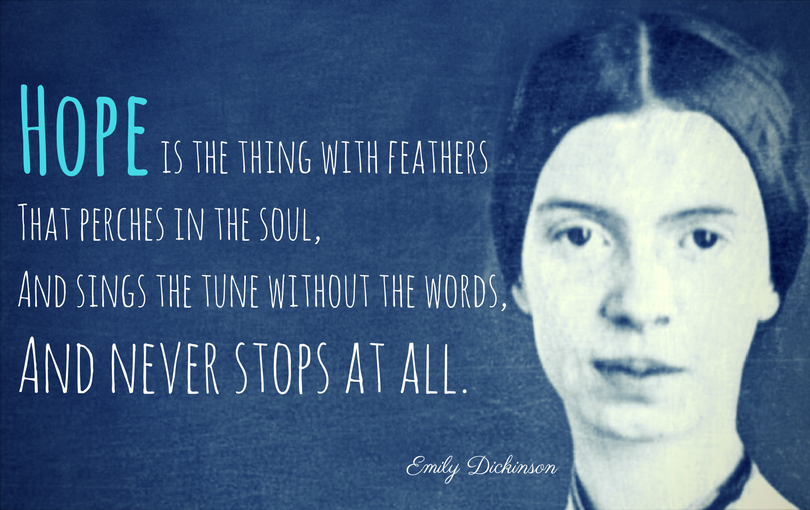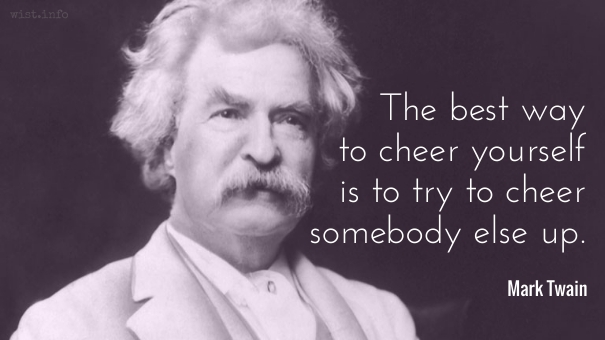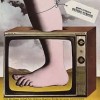Do not let us speak of darker days: let us speak rather of sterner days. These are not dark days; these are great days — the greatest days our country has ever lived; and we must all thank God that we have been allowed, each of us according to our stations, to play a part in making these days memorable in the history of our race.
Winston Churchill (1874-1965) British statesman and author
Speech, Harrow School, England (1941-10-29)
(Source)
Quotations about:
encouragement
Note not all quotations have been tagged, so Search may find additional quotes on this topic.
So this is my wish, a wish for me as much as it is a wish for you: in the world to come, let us be brave — let us walk into the dark without fear, and step into the unknown with smiles on our faces, even if we’re faking them.
And whatever happens to us, whatever we make, whatever we learn, let us take joy in it. We can find joy in the world if it’s joy we’re looking for, we can take joy in the act of creation.
So that is my wish for you, and for me. Bravery and joy.Neil Gaiman (b. 1960) British author, screenwriter, fabulist
Blog entry (2012-12-31), “My New Year’s Wish”
(Source)
In this country it is useful from time to time to kill one admiral in order to encourage the others.
[Dans ce pays-ci il est bon de tuer de tems en tems un Amiral pour encourager les autres.]
Voltaire (1694-1778) French writer [pseud. of Francois-Marie Arouet]
Candide, ch. 23 (1759) [tr. Adams (1966)]
(Source)
As Candide witnesses the (real-life) 1757 execution of English Admiral John Byng, who withdrew his undermanned ships from a naval battle during the French invasion of Minorca at the beginning of the Seven Years War. Byng was scapegoated for poor condition of the Mediterranean fleet, and court martialed for "failing to do his utmost" in the battle, which carried an automatic death penalty. In real life, Voltaire had been one of the people who attempted to intervene on Byng's behalf. In the book, Candide is so appalled by the injustice, he refuses to touch ground on English soil.
The last few words ("pour encourager les autres") are frequently quoted on their own referring to any harsh punishment used as an example to incent those who follow.
(Source (French)). Alternate translations:
In this country it is found requisite, now and then, to put an admiral to death, in order to encourage the others to fight.
[tr. Smollett (1759)]
In this country it is found good, from time to time, to kill one Admiral to encourage the others.
[Source (1859)]
In this country it is found requisite, now and then, to put one admiral to death, in order to spirit up the others.
[tr. Smollett/Thornton (1920)]
In this country it is good to kill an Admiral from time to time to encourage the others.
[Modern Library ed. (1920)]
In this country it is necessary, now and then, to put one admiral to death in order to inspire the others to fight.
[tr. Morley (1922)]
In this country it is a good thing to kill an admiral from time to time to encourage the others.
[Random House ed. (1928)]
In this country it’s good to kill an admiral now and then, to encourage the others.
[tr. Bair (1959)]
In this country it is found requisite,now and then to kill an admiral, in order to encourage the others.
[tr. Cameron (1997)]
In this country they think it's good to kill an Admiral from time to time, to encourage the others.
[tr. Gordon (1999)]
A professor can never better distinguish himself in his work than by encouraging a clever pupil, for the true discoverers are among them, as comets amongst the stars.
Carl Linnaeus (1707-1778) Swedish botanist, zoologist, taxonomist, physician [Carl von Linné, Carolus Linnæus]
Quoted in Theodor Magnus Fries, Linnaeus, ch. 10 “Pupils” (1903) [ed./tr. B. J. Jackson (1923)]
(Source)
When you live with a joyful sense of purpose, when you infuse your life with a greater purpose beyond your individual self, every aspect of your karma can become a brilliant facet of your mission. You can transform sorrow and adversity of any sort into joy, stability, health, and prosperity. By changing poison into medicine and accomplishing your inner revolution, you can use every experience of karma to encourage others who suffer from the same problems that you overcame.
You can become an ambassador of hope, an essential and radiant treasure of humanity, in which you recognize that all who have ever lived are members of your extended family.
As you continue to spread light in this way, actively doing good in the world, that energy will come back to you in abundant positivity. When you refuse to perpetuate any bad that has been done to you, you can free yourself from the chains of negativity.
Tina Turner (1939-2023) American singer, songwriter, actress [b. Anna Mae Bullock]
Happiness Becomes You, ch. 8 (2020)
(Source)
Consider what you came from: you are Greeks!
You were not born to live like mindless brutes
but to follow paths of excellence and knowledge.[Considerate la vostra semenza:
fatti non foste a viver come bruti,
ma per seguir virtute e canoscenza.]Dante Alighieri (1265-1321) Italian poet
The Divine Comedy [Divina Commedia], Book 1 “Inferno,” Canto 26, l. 118ff (26.118-120) [Ulysses] (1309) [tr. Musa (1971)]
(Source)
Speaking to his sailors on their final voyage, urging them to explore the unknown.
(Source (Italian)). Alternate translations:
On your original reflect, nor think
That you were, made, like Brutes, to only live,
But knowledge and to virtuous acts pursue.
[tr. Rogers (1782)]
Recall your glorious toils, your lofty birth.
Nor like the grov'ling herds, ally'd to earth.
No base despondence quit your lofty claim.
[tr. Boyd (1802), st. 19]
Call to mind from whence we sprang:
Ye were not form’d to live the life of brutes
But virtue to pursue and knowledge high.
[tr. Cary (1814)]
Bethink you of your birth-rank and its dues:
Ye were not thus for brutish life endued.
But Virtue's path and Learning's born to chuse.
[tr. Dayman (1843)]
Consider your origin: ye were not formed to live like brutes, but to follow virtue and knowledge.
[tr. Carlyle (1849)]
Consider, then, the birth from whence you sprung:
You were not made, like brutes, to live and die:
The path of virtue and of knowledge try.
[tr. Bannerman (1850)]
Consider well the seed from whence you sprung;
You were not made to live as live the beasts,
But to seek virtue and true knowledge grasp.
[tr. Johnston (1867)]
Consider ye the seed from which ye sprang;
Ye were not made to live like unto brutes,
But for pursuit of virtue and of knowledge.
[tr. Longfellow (1867)]
Consider your begetting; ye were not made to live as brutes, but to follow virtue and knowledge.
[tr. Butler (1885)]
Over your noble birthright ye should muse;
To live like senseless brutes ye were not made,
But knowledge to pursue and virtue use.
[tr. Minchin (1885)]
Consider ye your origin; ye were not made to live as brutes, but for pursuit of virtue and of knowledge.
[tr. Norton (1892)]
Bethink you of your birth: ye were not made to live the life of brutes, but to obey the call of valour and of knowledge.
[tr. Sullivan (1893)]
Consider ye the seed that ye are sprung from:
Ye were not made to live as the brute creatures,
But that ye virtue might pursue and knowledge.
[tr. Griffith (1908)]
Take thought of the seed from which you spring. You were not born to live as brutes, but to follow virtue and knowledge.
[tr. Sinclair (1939)]
Think on the seed ye spring from! Ye were made
Not to live life of brute beasts of the field
But follow virtue and knowledge unafraid.
[tr. Binyon (1943)]
Think of your breed; for brutish ignorance
Your mettle was not made; you were made men.
To follow after knowledge and excellence.
[tr. Sayers (1949)]
Greeks! You were not born to live like brutes,
but to press on toward manhood and recognition!
[tr. Ciardi (1954), l. 110]
Consider your origin: you were not made to live as brutes, but to pursue virtue and knowledge.
[tr. Singleton (1970)]
Consider well the seed that gave you birth:
you were not made to live your lives as brutes,
but to be followers of worth and knowledge.
[tr. Mandelbaum (1980)]
Consider then the race from which you have sprung:
You were not made to live like animals,
But to pursue virtue and know the world.
[tr. Sisson (1981)]
Consider well your seed:
You were not born to live as a mere brute does,
But for the pursuit of knowledge and the good.
[tr. Pinsky (1994)]
Consider your sowing: you were not made to live like brutes, but to follow virtue and knowledge.
[tr. Durling (1996)]
Consider your origin: you were not made to live like brutes, but to follow virtue and knowledge.
[tr. Kline (2002)]
Hold clear in thought your seed and origin.
You were not made to live as mindless brutes,
but go in search of virtue and true knowledge.
[tr. Kirkpatrick (2006)]
Consider how your souls were sown:
you were not made to live like brutes or beasts,
but to pursue virtue and knowledge.
[tr. Hollander/Hollander (2007)]
Think of your origins, the people you come from:
You were not made to live like wild-toothed beasts,
But for the pursuit of virtue and honest knowledge.
[tr. Raffel (2010)]
Remember now your pedigree.
You were not born to live as brutes. Virtue
And knowledge are your guiding lights.
[tr. James (2013)]
Therefore, rise. Force your breath, restore it
By that spirit which wins in every battle it fights,
Unless the beaten body says, “no more!”[E però leva sù; vinci l’ambascia
l’animo che vince ogne battaglia,
col suo grave corpo non s’accascia.]Dante Alighieri (1265-1321) Italian poet
The Divine Comedy [Divina Commedia], Book 1 “Inferno,” Canto 24, l. 52ff (24.52-54) [Virgil] (1309) [tr. Raffel (2010)]
(Source)
(Source (Italian)). Alternate translations:
Therefore rise up; your breathing short o'ercome
With Courage, for it ev'ry battle wins;
Unless your heavy limbs submit to sloth.
[tr. Rogers (1782)]
Arise!-- It ill befits the mounting mind
With mortal cares debas'd, to lag behind.
[tr. Boyd (1802)]
Thou therefore rise: vanish thy weariness
By the mind’s effort, in each struggle form’d
To vanquish, if she suffer not the weight
Of her corporeal frame to crush her down.
[tr. Cary (1814)]
Up then; o'ercome thy breathlessness by mind;
To win the battle mind shall never fail.
If by her own dull body's weight declined
She faint not.
[tr. Dayman (1843)]
And therefore rise! conquer thy panting with the soul, that conquers every battle, if with its heavy body it sinks not down.
[tr. Carlyle (1849)]
Then rouse thyself and conquer thy fatigue,
With mind victorious in every battle,
Unless the dull frame subdue its mettle.
[tr. Bannerman (1850)]
Up, up, then, up! conquer thy suff'ring breath,
That courage rouse which ev'ry battle wins,
If not kept down by the too-heavy flesh.
[tr. Johnston (1867)]
And therefore raise thee up, o'ercome the anguish
With spirit that o'ercometh every battle,
If with its heavy body it sink not.
[tr. Longfellow (1867)]
And therefore lift up, conquer the task with the mind that wins every battle, if with its heavy jody it throw not itself down.
[tr. Butler (1885)]
Therefore arise, thy weakness stem with worth
Of soul, that of all battles wins the prime,
Unless 'tis borne down by the body's dearth.
[tr. Minchin (1885)]
And therefore rise up, conquer the exhaustion with the spirit that conquers every battle, if by its heavy body it be not dragged down.
[tr. Norton (1892)]
Wherefore bestir thyself; conquer thy weariness with the courageous soul that conquereth in every fight, if it so be that it is not dragged down by the body's weight.
[tr. Sullivan (1893)]
And so do thou rise up, conquer the shortness
Of breath with spirit that wins every battle.
If with its heavy body it does not totter.
[tr. Griffith (1908)]
Rise, therefore, conquer thy panting with the soul, which conquers in every battle if it sink not with its body's weight.
[tr. Sinclair (1939)]
And therefore rise! Quell now thy panting breast
With the soul's strength that winneth every fight,
So it be not by the body's weight deprest.
[tr. Binyon (1943)]
Rise up; control thy panting breath, and call
The soul to aid, that wins in every fight,
Save the dull flesh should drag it to a fall.
[tr. Sayers (1949)]
Now, therefore, rise. Control your breath, and call
upon the strength of soul that wins all battles
unless it sink in the gross body's fall.
[tr. Ciardi (1954)]
Rise, therefore; conquer your panting with the soul that vvins every battle, if with its heavy body it sinks not down.
[tr. Singleton (1970)]
Stand up! Dominate this weariness of yours
with the strength of soul that wins in every battle
if it does not sink beneath the body's weight.
[tr. Musa (1971)]
Therefore, get up; defeat your breathlessness
with spirit that can win all battles if
the body’s heaviness does not deter it.
[tr. Mandelbaum (1980)]
Therefore get up: control your breathlessness
By force of mind, which wins in every battle,
If with its heavy body it does not sink.
[tr. Sisson (1981)]
So stand
And overcome your panting -- with the soul
Which wins all battles if it does not despond
Under its heavy body's weight.
[tr. Pinsky (1994), l. 52ff]
And therefore stand up; conquer your panting with the spirit that conquers in every battle, if it does not let the heavy body crush it down.
[tr. Durling (1996)]
So rise, and overcome weariness with spirit, that wins every battle, if it does not lie down with the gross body.
[tr. Kline (2002)]
Get up! breathe with the soul, for it is brave
in every battle, and will always win,
unless the heavy body be its grave.
[tr. Carson (2002)]
So upwards! On! And vanquish labored breath!
In any battle mind-power will prevail,
unless the weight of body loads it down.
[tr. Kirkpatrick (2006)]
Get to your feet! Conquer this laboring breath
with strength of mind, which wins the battle
if not dragged down by body's weight.
[tr. Hollander/Hollander (2007)]
Therefore arise, with your soul’s flag unfurled
Above your fear, for so your soul prevails
In every battle if the body's weight
Can't sink it.
[tr. James (2013)]
It is those who are successful, in other words, who are most likely to be given the kinds of special opportunities that lead to further success. It’s the rich who get the biggest tax breaks. It’s the best students who get the best teaching and most attention. And it’s the biggest nine- and ten-year-olds who get the most coaching and practice. Success is the result of what sociologists like to call “accumulative advantage.”
Malcolm Gladwell (b. 1963) Anglo-Canadian journalist, author, public speaker
Outliers: The Story of Success, ch. 1 “The Matthew Effect,” sec. 5 (2008)
(Source)
Your task is to endure and save yourselves for better days.
[Durate, et vosmet rebus servate secundis.]
Virgil (70-19 BC) Roman poet [b. Publius Vergilius Maro; also Vergil]
The Aeneid [Ænē̆is], Book 1, l. 207 (1.207) [Aeneas] (29-19 BC) [tr. West (1990)]
(Source)
(Source (Latin)). Alternate translations:
Live, and preserve yourselves for better chance.
[tr. Ogilby (1649)]
Endure the hardships of your present state;
Live, and reserve yourselves for better fate.
[tr. Dryden (1697)]
Bear up, and live for happier days.
[tr. Conington (1866)]
Be firm,
And keep your hearts in hope of brighter days.
[tr. Cranch (1872), l. 263ff]
Keep heart, and endure till prosperous fortune come.
[tr. Mackail (1885)]
Abide, endure, and keep yourselves for coming days of joy.
[tr. Morris (1900)]
Bear up; reserve you for a happier day.
[tr. Taylor (1907), l. 238]
Have patience all!
And bide expectantly that golden day.
[tr. Williams (1910)]
Endure, and keep yourselves for days of happiness.
[tr. Fairclough (1916)]
Endure, and keep yourself for better days.
[tr. Humphries (1951)]
Hold on, and find salvation in the hope of better things!
[tr. Day Lewis (1952)]
Hold out, and save yourselves for kinder days.
[tr. Mandelbaum (1971)]
Be patient:
Save yourselves for more auspicious days.
[tr. Fitzgerald (1981), ll. 282-83]
Endure,
and preserve yourselves for happier days.
[tr. Kline (2002)]
Endure, and save yourselves for happier times.
[tr. Lombardo (2005)]
Bear up.
Save your strength for better times to come.
[tr. Fagles (2006)]
Hold on.
Save your strength for better days to come.
[tr. Bartsch (2021)]
Lift up your hearts!
No more complaint and fear! It well may be
some happier hour will find this memory fair.[Revocate animos, maestumque timorem
mittite: forsan et haec olim meminisse iuvabit.]Virgil (70-19 BC) Roman poet [b. Publius Vergilius Maro; also Vergil]
The Aeneid [Ænē̆is], Book 1, l. 202ff (1.202-203) (29-19 BC) [tr. Williams (1910)]
(Source)
(Source (Latin)). Alternate translations:
Courage recall, banish sad feare; delight
It may hereafter these things to recite,
[tr. Ogilby (1649)]
Resume your courage and dismiss your care.
An hour will come, with pleasure to relate
Your sorrows past, as benefits of Fate.
[tr. Dryden (1697)]
Resume then your courage, and dismiss your desponding fears; perhaps hereafter it may delight you to remember these sufferings.
[tr. Davidson/Buckley (1854)]
Come, cheer your souls, your fears forget;
This suffering will yield us yet
A pleasant tale to tell.
[tr. Conington (1866)]
Recall your courage ; banish gloomy fears.
Some day perhaps the memory even of these
Shall yield delight.
[tr. Cranch (1872)]
Recall your courage, put dull fear away. This too sometime we shall haply remember with delight.
[tr. Mackail (1885)]
Come, call aback your ancient hearts and put your fears away!
This too shall be for joy to you remembered on a day.
[tr. Morris (1900)]
Fear not; take heart; hereafter, it may be
These too will yield a pleasant tale to tell.
[tr. Taylor (1907)]
Recall your courage and put away sad fear. Perchance even this distress it will some day be a joy to recall.
[tr. Fairclough (1916)]
Call the nerve back; dismiss the fear, the sadness.
Some day, perhaps, remembering even this
Will be a pleasure.
[tr. Humphries (1951)]
Take heart again, oh, put your dismal fears away!
One day -- who knows? -- even these will be grand things to look back on.
[tr. Day Lewis (1952)]
Call back
your courage, send away your grieving fear.
Perhaps one day you will remember even
these our adversities with pleasure.
[tr. Mandelbaum (1971), l. 281ff]
Now call back
Your courage, and have done with fear and sorrow.
Some day, perhaps, remembering even this
Will be a pleasure.
[tr. Fitzgerald (1981), l. 275ff]
So summon up your courage once again. This is no time for gloom or fear. The day will come, perhaps, when it will give you pleasure to remember even this.
[tr. West (1990)]
Remember your courage and chase away gloomy fears:
perhaps one day you’ll even delight in remembering this.
[tr. Kline (2002)]
Recall your courage
And put aside your fear and grief. Someday, perhaps,
It will help to remember these troubles as well.
[tr. Lombardo (2005), l. 238ff]
Call up your courage again. Dismiss your grief and fear.
A joy it will be one day, perhaps, to remember even this.
[tr. Fagles (2006)]
Perhaps one day it will be a joy to remember also these things.
[tr. @sentantiq (2011)]
Summon your spirits back, and abandon your sad fear:
perhaps one day even these things will be a pleasing memory.
[tr. @sentantiq/Robinson (2015)]
Perhaps one day it will be a joy to remember even these things
[tr. @sentantiq (2016)]
One day we’re going to look back on even this and laugh (maybe).
[tr. Tortorelli (2017)]
Perhaps someday it will bring pleasure to recall these things.
[tr. @sentantiq (2020)]
Be brave, let go your fear and despair.
Perhaps someday even memory of this will bring you pleasure.
[tr. Bartsch (2021)]
Commentary on this passage: A Hope for Better Days to Come – SENTENTIAE ANTIQUAE.
Comrades, we’re well acquainted with evils, then and now.
Worse than this you have suffered. God will end all this too.[O socii — neque enim ignari sumus ante malorum —
O passi graviora, dabit deus his quoque finem.]Virgil (70-19 BC) Roman poet [b. Publius Vergilius Maro; also Vergil]
The Aeneid [Ænē̆is], Book 1, l. 198ff (1.198-199) [Aeneas] (29-19 BC) [tr. Day Lewis (1952)]
(Source)
(Source (Latin)). Alternate translations:
Deare friends (for we have many sorrows past)
You worse have felt, God these will end at last.
[tr. Ogilby (1649)]
Endure, and conquer! Jove will soon dispose
To future good our past and present woes.
[tr. Dryden (1697)]
O companions, who have sustained severer ills than these, (for we are not strangers to former days of adversity,) to these, too, God will grant a termination.
[tr. Davidson/Buckley (1854)]
Comrades and friends! for ours is strength
Has brooked the test of woes;
O worse-scarred hearts! these wounds at length
The Gods will heal, like those.
[tr. Conington (1866)]
O friends, who greater sufferings still have borne,
(for not unknown to us are former griefs,)
And end also to these the deity
Will give.
[tr. Cranch (1872), l. 251ff]
O comrades, for not now nor aforetime are we ignorant of ill, O tried by heavier fortunes, unto this last likewise will God appoint an end.
[tr. Mackail (1885)]
O fellows, we are used ere now by evil ways to wend;
O ye who erst bore heavier loads, this too the Gods shall end.
[tr. Morris (1900)]
Comrades! of ills not ignorant; far more
Than these ye suffered, and to these as well
Will Jove give ending, as he gave before.
[tr. Taylor (1907), st. 27 / l. 235ff]
Companions mine, we have not failed to feel
calamity till now. O, ye have borne
far heavier sorrow: Jove will make an end
also of this.
[tr. Williams (1910)]
O comrades -- for ere this we have not been ignorant of evils -- O ye who have borne a heavier lot, to this, too, God will grant an end!
[tr. Fairclough (1916)]
O comrades, we have been through evil
Together before this; we have been through worse
[...] This, too, the god will end.
[tr. Humphries (1951)]
O comrades -- surely we're not ignorant
of earlier disasters, we who have suffered
things heaver than this -- our god will give
an end to this as well.
[tr. Mandelbaum (1971), l. 276ff]
Friends and companions,
Have we not known hard hours before this?
My men, who have endured still greater dangers,
God will grant us an end to these as well.
[tr. Fitzgerald (1981), l. 270ff]
My friends, this is not the first trouble we have known. We have suffered worse before, and this too will pass. God will see to it.
[tr. West (1990)]
O friends (well, we were not unknown to trouble before)
O you who’ve endured worse, the god will grant an end to this too.
[tr. Kline (2002)]
Trojans! This is not our first taste of trouble.
You have suffered worse than this, my friends,
And God will grant an end to this also.
[tr. Lombardo (2005), l. 234ff]
My comrades, hardly strangers to pain before now,
we all have weathered worse. Some god will grant us
an end to this as well.
[tr. Fagles (2006)]
My friends: we're no strangers to misfortune. You've suffered worse; some god will end this too.
[tr. Bartsch (2021)]
We should take comfort that while we may have more still to endure, better days will return: we will be with our friends again; we will be with our families again; we will meet again.
Elizabeth II (b. 1926) Queen of the United Kingdom and the Commonwealth realms
Address to the Nation (5 Apr 2020)
(Source)
On the COVID-19 Pandemic. The last line is an allusion to the famous WWII song.
Most artists, ashamed of their need for encouragement, try to carry their work to term like a secret pregnancy. … We bunker in with our projects, beleaguered by our loneliness and the terrible secret that we carry: We need friends to our art. We need them as desperately as friends to our hearts. Our projects, after all, are our brainchildren, and what they crave is a loving extended family, a place where “How’d it go today?” can refer to a turn at the keys or the easel as easily as a turn in the teller’s cage.”
Julia Cameron (b. 1948) American teacher, author, filmmaker, journalist
“Taking Heart,” The Sound of Paper (2005)
(Source)
And as she looked about, she did behold
How over that same door was likewise writ,
Be bold, be bold, and everywhere Be bold,
That much she mused, yet could not construe it
By any riddling skill or common wit.
At last she spied at that room’s upper end
Another iron door, on which was writ,
Be not too bold.Edmund Spenser (c. 1552-1599) English poet
The Faerie Queen, Book 3, Canto 11, st. 54 (1590-96)
(Source)
You have it easily in your power to increase the sum total of this world’s happiness now. How? By giving a few words of sincere appreciation to someone who is lonely or discouraged. Perhaps you will forget tomorrow the kind words you say today, but the recipient may cherish them over a lifetime.
To Herbert Westbrook, without whose never-failing advice, help, and encouragement, this book would have been finished in half the time.
P. G. Wodehouse (1881-1975) Anglo-American humorist, playwright and lyricist [Pelham Grenville Wodehouse]
A Gentleman of Leisure, Dedication (1910)
(Source)
HENRY: This story shall the good man teach his son;
And Crispin Crispian shall ne’er go by
From this day to the ending of the world,
But we in it shall be remember’d, —
We few, we happy few, we band of brothers.
For he to-day that sheds his blood with me,
Shall be my brother; be he ne’er so vile,
This day shall gentle his condition:
And gentlemen in England, now a-bed,
Shall think themselves accurs’d, they were not here,
And hold their manhoods cheap, whiles any speaks,
That fought with us upon Saint Crispin’s day.William Shakespeare (1564-1616) English dramatist and poet
Henry V, Act 4, sc. 3, l. 58ff (4.3.58-69) (1599)
(Source)
HENRY: Rather proclaim it, Westmoreland, through my host,
That he which hath no stomach to this fight,
Let him depart; his passport shall be made,
And crowns for convoy put into his purse:
We would not die in that man’s company,
That fears his fellowship to die with us.William Shakespeare (1564-1616) English dramatist and poet
Henry V, Act 4, sc. 3, l. 37ff (4.3.37-42) (1599)
(Source)
HENRY: Once more unto the breach, dear friends, once more;
Or close the wall up with our English dead!
In peace, there’s nothing so becomes a man,
As modest stillness and humility:
But when the blast of war blows in our ears,
Then imitate the action of the tiger;
Stiffen the sinews, summon up the blood,
Disguise fair nature with hard-favored rage ….William Shakespeare (1564-1616) English dramatist and poet
Henry V, Act 3, sc. 1, l. 1ff (3.1.1-8) (1599)
(Source)
Hope is the thing with feathers
That perches in the soul,
And sings the tune without the words,
And never stops at all.
Every blade of grass has its angel that bends over it and whispers, “Grow, grow.”
The Talmud (AD 200-500) Collection of Jewish rabbinical writings
Midrash Rabba, Bereshit 10:6
Usually attributed to the Talmud, but actually from a Midrash. Alt. trans.:
- "R. Shimon said: There is not a single herb but has a mazal [constellation] in the heavens which strikes it and says, 'Grow!'" [tr. Rabbi Ruth Adar]
- "Said Rabbi Simon: 'Every single blade of grass has a corresponding 'mazal' in the sky which hits it and tells it to grow." [Source]
The best way to cheer yourself is to try to cheer somebody else up.
Mark Twain (1835-1910) American writer [pseud. of Samuel Clemens]
Note (1896-11-26), Mark Twain’s Notebook, ch. 27 “England” (1935) [ed. Albert Bigelow Paine]
(Source)
Written while in Guilford, England, shortly after the death of his daughter Susy in America.
Often given as "The best way to cheer yourself up is to try to cheer somebody else up." More discussion here.
MINSTREL: [singing]
He was not in the least bit scared to be mashed into a pulp,
Or to have his eyes gouged out and his elbows broken,
To have his kneecaps split and his body burned away,
And his limbs all hacked and mangled, brave Sir Robin!
His head smashed in, and his heart cut out,
And his liver removed, and his bowels unplugged,
And his nostrils raped, and his bottom burnt off,
And his penis —SIR ROBIN: That’s enough music for now, lads.
Things are not getting worse; things have always been this bad. Nothing is more consoling than the long perspective of history. It will perk you up no end to go back and read the works of progressives past. You will learn therein that things back then were also terrible, and what’s more, they were always getting worse. This is most inspiriting.
Molly Ivins (1944-2007) American writer, political columnist [Mary Tyler Ivins]
The Progressive (Mar 1986)
(Source)
Keep away from people who try to belittle your ambitions. Small people always do that, but the really great make you feel that you, too, can become great.
There are high spots in all of our lives and most of them have come about through encouragement from someone else. I don’t care how great, how famous, or successful a man or woman may be, each hungers for applause.
George Matthew Adams (1878-1962) American newspaper columnist, publisher
Syndicated Column (1932)
(Source)
Do be kind to yourself. Fill pages as quickly as possible; double space, or write on every second line. Regard every new page as a small triumph.
Roddy Doyle (b. 1958) Irish novelist, dramatist, screenwriter
In “Ten Rules for Writing Fiction,” The Guardian (20 Feb 2010)
(Source)
Arise, arise, Riders of Théoden!
Fell deeds awake, fire and slaughter!
Spear shall be shaken, shield be splintered,
A sword-day, a red day, ere the sun rises!
Ride now, ride now! Ride to Gondor!J.R.R. Tolkien (1892-1973) English writer, fabulist, philologist, academic [John Ronald Reuel Tolkien]
The Lord of the Rings, Vol. 3: The Return of the King, Book 5, ch. 5 “The Ride of the Rohirrim” [Theoden] (1955)
(Source)
In the Peter Jackson film, the last line is merged with another Theoden line from ch. 6, as he lies dying: "Death! Ride, ride to ruin, and the world's ending!"
Men might be better if we better deemed
Of them. The worst way to improve the world
Is to condemn it.Philip James Bailey (1816-1902) English poet, lawyer
Festus, Sc. “A Mountain – Sunrise” [Festus] (1839)
(Source)
Good words are worth much, and cost little.
George Herbert (1593-1633) Welsh priest, orator, poet.
Jacula Prudentum, or Outlandish Proverbs, Sentences, &c. (compiler), # 155 (1640 ed.)
(Source)
The object of preaching is, constantly to remind mankind of what mankind are constantly forgetting; not to supply the defects of human intelligence, but to fortify the feebleness of human resolutions.
[Arguments] seem unable to influence the masses in the direction of what is noble and good. For the masses naturally obey fear, not shame, and abstain from shameful acts because of the punishments associated with them, not because they are disgraceful.
[τοὺς δὲ πολλοὺς ἀδυνατεῖν πρὸς καλοκαγαθίαν προτρέψασθαι: οὐ γὰρ πεφύκασιν αἰδοῖ πειθαρχεῖν ἀλλὰ φόβῳ, οὐδ᾽ ἀπέχεσθαι τῶν φαύλων διὰ τὸ αἰσχρὸν ἀλλὰ διὰ τὰς τιμωρίας]
Aristotle (384-322 BC) Greek philosopher
Nicomachean Ethics [Ἠθικὰ Νικομάχεια], Book 10, ch. 9 (10.9.3-4) / 1179b.10ff (c. 325 BC) [tr. Crisp (2000)]
(Source)
(Source (Greek)). Alternate translations:
[Talking and writing] plainly are powerless to guide the mass of men to Virtue and goodness; because it is not their nature to be amenable to a sense of shame but only to fear; nor to abstain from what is low and mean because it is disgraceful to do it but because of the punishment attached to it
[tr. Chase (1847), ch. 8]
But, for most men, mere precept is powerless to dispose them to noble conduct. For their nature is such, that they are not ruled by a proper sense of shame, but only by fear, and do not abstain from vice because of the disgrace which attaches to it, but because of the punishment which its practice involves.
[tr. Williams (1869)]
[Theories] are impotent to inspire the mass of men to chivalrous action; for it is not the nature of such men to obey honour but terror, nor to abstain from evil for fear of disgrace but for fear of punishment.
[tr. Welldon (1892)]
Yet [theories] are powerless to turn the mass of men to goodness. For the generality of men are naturally apt to be swayed by fear rather than by reverence, and to refrain from evil rather because of the punishment that it brings than because of its own foulness.
[tr. Peters (1893)]
[Arguments] are not able to encourage the many to nobility and goodness. For these do not by nature obey the sense of shame, but only fear, and do not abstain from bad acts because of their baseness but through fear of punishment.
[tr. Ross (1908)]
Yet [theories] are powerless to stimulate the mass of mankind to moral nobility. For it is the nature of the many to be amenable to fear but not to a sense of honor, and to abstain from evil not because of its baseness but because of the penalties it entails.
[tr. Rackham (1934)]
[Arguments are] unable to encourage ordinary people toward noble-goodness. For ordinary people naturally obey not shame but fear and abstain from base things not because of their shamefulness but because of the sanctions involved.
[tr. Reeve (1948)]
[Arguments] cannot exhort ordinary men to do good and noble deeds, for it is the nature of these men to obey not a sense of shame but fear, and to abstain from what is bad not because this is disgraceful but because of the penalties which they would receive.
[tr. Apostle (1975)]
[Discourses] are incapable of impelling the masses toward human perfection. For it is the nature of the many to be ruled by fear rather than by shame, and to refrain from evil not because of the disgrace but because of the punishments.
[tr. Thomson/Tredennick (1976)]
But [arguments] seem unable to turn the many toward being fine and good. For the many naturally obey fear, not shame; they avoid what is base because of the penalties, not because it is disgraceful.
[tr. Irwin/Fine (1995)]
Correction does much, but encouragement does more.
Johann Wolfgang von Goethe (1749-1832) German poet, statesman, scientist
(Attributed) [tr.Wenckstern (1853)]
(Source)
EDGAR: Know thou this: that men
Are as the time is; to be tender-minded
Does not become a sword.William Shakespeare (1564-1616) English dramatist and poet
King Lear, Act 5, sc. 3, l. 35ff (5.3.35-37) (1606)
(Source)



